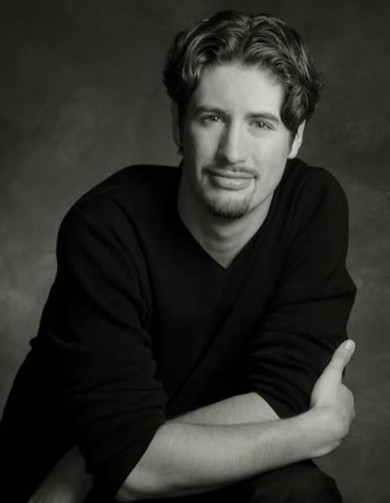Kievman’s long-gestating opera “Hamlet” shows promise, still needs work

Kenneth Mattice stars in the title role of Carson Kievman's opera "Hamlet," which had its world premiere Friday night at the SoBe Arts Institute.
The 21-year journey to the stage of Carson Kievman’s opera Hamlet took an important step forward with the premiere of a staged concert version on Friday night at Kievman’s SoBe Institute of the Arts in Miami Beach.
More a blueprint of a production than the authentic article, the fully costumed performance featured singers reading from scores, accompanied by computerized Midi files and electronic keyboard rather than Kievman’s orchestration. The pitfalls of substituting electronics for live performance became all too evident when conductor John Yaffe halted the performance during a crucial speech by Claudius in Act IV due to failure of the system, apologizing to the audience and recommencing the scene after the sound files were reconfigured. Due to the lack of actual instrumentation, the harmonic structure and musical coloration of the score were not fully realized.
While composers through the centuries have been drawn to operatic settings of plays by Shakespeare, few have succeeded in conceiving works that are both musically significant and true to the spirit of the Bard. Verdi’s late masterworks Otello and Falstaff set the bar high and Benjamin Britten’s atmospheric adaptation of A Midsummer Night’s Dream comes close to that standard.
In addition to composing the music, Kievman has fashioned his own libretto. While he has already cut some sequences, the score needs substantial additional tightening, particularly the first two acts. The noble funeral march that opens the score is followed by minimalist reiteration, with fitful inspiration. Hamlet’s solo monologues are poignantly emotive, the beautiful arioso writing dramatically powerful. The ghost scene is wonderfully eerie; yet too much of the initial scenes amounts to note spinning.
In Acts II and IV the musical and dramatic inspiration is more sure and consistent. A strong theatrical crescendo builds from the confrontation of Hamlet and Ophelia through the play within a play and Ophelia’s haunting mad scene. Indeed one of Kievman’s major accomplishments is turning the usually nondescript character of Ophelia into a strong dramatic persona. Only the overlong scene between Claudius and Laertes halts the inevitable march toward final tragedy, Horatio’s final Goodnight Sweet Prince is lyrically potent.
Elegantly costumed by Angelina Esposito with lighting by Robert Perry that alternates bright glints of color with shadowy effects, Kievman’s production effectively utilizes the entire space of the school’s Little Stage Theater, aisles and entrances included. A well-drilled cast presented the score in its best light. Kenneth Mattice was a charismatic Hamlet, his fine lyric baritone spinning the often unaccompanied solos effortlessly. Unhinged from the onset, Mattice’s prince seemed doomed with every step and utterance. Megan Bruce nearly stole the show as Ophelia with her flawless coloratura and compelling portrait of emotional disintegration.
Michael Douglas Jones brought dignity and deep bass tones to the conniving Claudius. Danielle Krause was the strongly passionate Gertrude with a glamorous mezzo to match. As Laertes, Jeffrey Wienand conveyed strong masculinity and envy, his secure baritone dominating every scene. As the loyal Horatio, Justin John Moniz brought restrained dignity and a refined lyric tenor to his interjections. Only Richard Cassell’s fuzzy bass vibrato and over-the-top line readings in the dual roles of Polonius and the gravedigger seemed to strike a wrong note.
Kumya Rowley’s impressive dramatic tenor commanded attention as Marcellus. Enrique Estrada and David Schnell were vocally and dramatically delightful as Rosencrantz and Gildenstern. As the Player Queen, Jillian Staffiera’s lovely lyric soprano and beguiling stage presence outshone the role’s cameo status.
A contemporary music specialist, Yaffee splendidly coordinated the complex interaction of live vocal and computerized sound. Victoria Yueh-Yin Liao was the hard-working pianist.
With full orchestral garb and an experienced director with sure theatrical instincts to reshape the opera, Kievman’s opera may have a future. In its present skeletal form, this Prince of Denmark is not yet ready for prime time.
SoBe Arts repeats Hamlet 8 p.m. Saturday and 7:30 Sunday and March 9-11 at the Little Stage Theater, SoBe Institute of the Arts in Miami Beach. 305-674-9229 www.sobearts.org.
Posted in Performances
Leave a Comment
Sat Mar 3, 2012
at 1:40 pm
No Comments